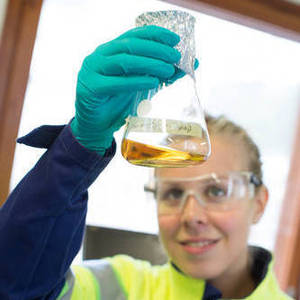Neste Oil opens pilot plant, commercializes coproduct




Neste Oil
October 30, 2012
BY Erin Krueger
Advertisement
Advertisement
Related Stories
Australia Department of Defence’s Pacific Support Vessel, ADV Reliant, has achieved a major milestone in strengthening the nations fuel resilience by refueling with renewable diesel for the first time.
PBF Energy Inc. on Oct. 29 announced the St. Bernard Renewables facility produced approximately 15,400 barrels per day of renewable diesel during the third quarter. Production is expected to expand slightly during the final quarter of the year.
CVR Energy Inc. on Oct. 29 announced plans to revert the renewable diesel unit at its refinery in Wynnewood, Oklahoma, back to hydrocarbon processing service during the next scheduled catalyst change in December.
Plug Power Partners with Edgewood Renewables to build best in class renewable fuels facility in Nevada
Plug Power Inc. on Oct. 23 announced a strategic partnership with Edgewood Renewables to support the development and construction of its advanced renewable fuel facility in North Las Vegas, Nevada, that will produce SAF and renewable diesel.
Neste Corp. on Oct. 29 announced sales of SAF reached a record 251,000 metric tons during Q3. The company’s renewable products segment reported improved EBTIDA, comparable sales margins and sales volumes for the three-month period.





